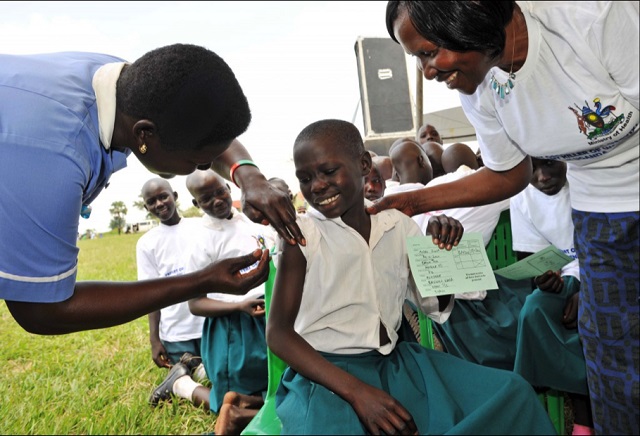
One-dose Human Papillomavirus (HPV) vaccine offers solid protection against cervical cancer
Kampala, Uganda | THE INDEPENDENT | The World Health Organization-WHO has updated its recommendations for the Human Papillomavirus (HPV) vaccine calling for one dose for girls and young women aged between nine and twenty years. They also recommended two doses with a 6-month interval for women older than 21 years.
A paper released by WHO on Wednesday states that a single-dose schedule, referred to as an alternative, the off-label single-dose schedule can provide a comparable efficacy and durability of protection to a two-dose regimen. The recommendation for alternative single-dose scheduling comes after an independent expert advisory group, SAGE recommended the same earlier in April.
This position paper comes at a time when many countries are reporting a decline in the HPV vaccine, especially in Africa where the vaccination was affected by long school closures due to COVID-19. The vaccine was mainly delivered to girls through school programmes.
Globally, WHO figures show between 2019 and 2021, coverage of the first dose of HPV vaccination fell by 25% to 15%. This means 3.5 million more girls missed out on HPV vaccination in 2021 compared to 2019.
The optimization of the HPV schedule is expected to improve access to the vaccine, offering countries the opportunity to expand the number of girls who can be vaccinated and alleviating the burden of the often complicated and costly follow-up required to complete the vaccination series. It’s vital that countries strengthen their HPV vaccination programs, expedite implementation and reverse the declines in coverage.
The position paper underscores the importance of vaccinating as a priority immunocompromised people, or those living with HIV. Immunocompromised individuals should receive a minimum two doses and where possible three doses.
The primary target of vaccination is girls aged 9-14, prior to the start of sexual activity. The vaccination of secondary targets such as boys and older females is recommended where feasible and affordable.
Cervical cancer is the fourth most common type of cancer in women, and more than 95% of cervical cancer is caused by sexually transmitted HPV. Experts say averting the development of cervical cancer by increasing access to effective vaccines is a highly significant step in alleviating unnecessary illness and death.
*****
URN
 The Independent Uganda: You get the Truth we Pay the Price
The Independent Uganda: You get the Truth we Pay the Price



